Have you ever been gripped by fear and anxiety? Crippling anxiety that dictates your actions. A sinking fear that sits in your gut, strangling your organs, trying to push your breakfast back up and out. I’m sure we can all recall times like that; perhaps while waiting in church to get married; going for a job interview; standing up in front of a crowd to make a speech. Fill in your own scenario. You know what makes you feel anxious.
To be honest, none of the above has ever worried me. You know what does? I hope it’s not just me, but I’m talking about that moment when you let your mouse pointer linger over that ‘publish’ button for longer than you’d like, wondering if what you’ve written is good enough? Should I even click it, or should I just hit the back button and retreat a safe distance and watch as everyone else does click it? At least that way, no one can tell me what I’ve written is terrible.
How do you get past that? Does that feeling ever go away? Maybe not, but there many things you can do to mitigate the symptoms.
When Sue invited me to write a post for her blog, I’d be lying if I said I wasn’t just a little anxious. Excited, yes, but also anxious. Me? Little me that only has one full-length title to his name? Perhaps you typed the wrong email address, Sue. That must be it. I’d be receiving an email in a few minutes, correcting the error. But no email came. Not the first day, not the second. There’s that voice again. The one that says ask someone else to do it.
Have you ever felt that way? Felt so anxious about doing something, that you’d rather miss an opportunity, than take a chance? I could very easily have said no to Sue’s invitation, but that would have been a mistake.
For those of you that don’t know me, I was diagnosed with MS (Multiple Sclerosis) in 2001. About eight years ago, I began to notice that walking was becoming difficult. From there it was only a short space of time until it became almost impossible, and I needed to use a wheelchair.
I was not ready for a wheelchair. I was in my thirties. Old people use wheelchairs. People would look at me and laugh; commenting Isn’t he too young to be in a wheelchair? What would my friends think? What about my work colleagues?
I was so concerned about what other people would think of me that I fought against the idea of a wheelchair. I fought hard. I struggled on at work, using just a walking stick. At the time I was a playworker, in charge of a large play project, attracting upwards of fifty children aged 5-14 years-of-age per night. As you can imagine, with that many children, there was no shortage of problems, but that was okay, because I was experienced, and I was trained. However, I wasn’t mobile, so if an argument broke out (and one invariably did), it would need to happen right next to the table I was sitting at. But guess what? It never did. Children can be so inconsiderate. The wheelchair was needed if I wanted to continue in my job.
More importantly, a wheelchair was needed to save my marriage.
But people would look and point and laugh behind my back. That’s what people do, right? But this issue came to a head one summer’s day about eight years ago and threatened my relationship with my wife of fourteen years, making it impossible to deflect anymore.
On this particular day, my wife told me that she was taking our two children for a weekend break at the seaside (Skegness, if there’s anyone here from Nottingham). I was welcome to come along, the only proviso being that I had to use a wheelchair to make the day as stress-free as possible for her and our children. What I hadn’t realised I’d been doing, was making her life miserable with my moaning and complaining and generally opting out of family life because it was too difficult for me to do anything that involved walking or moving.
So I was faced with a dilemma: go on a family-day out and put up with the staring and pointing, or just stay at home on my own. I wanted to go out with them, wanted to be part of the family, but what would people say? What would they think? That’s when I used the first of my techniques for dealing with my anxiety: reality checking.
My daughter (now almost 18) taught me a term that I’d never come across before It’s one which I’ve used many times since: First world problems. Neither my life nor my liberty was under threat at any point. I was worried what people may say or think about me. I did not have to worry where my next meal was coming from. I was worried that people may laugh at me. I was not worried that they would shoot me.
I love my family very much and could not allow a family trip to go ahead without dad, so we all went to the seaside and had a great day! If anyone looked or pointed, I never saw them. With the first hurdle cleared, my next (and probably biggest) hurdle was going to work in my wheelchair for the first time. My colleagues knew I was struggling, but didn’t know I had started using a wheelchair. Now that was a scary thought.
For days, even weeks, I contemplated giving up my job. Seriously. My fear of that initial encounter was all consuming. It owned me for a long time. Eventually though, I knew I had to go to work in a wheelchair. There was no escaping that and no more deflecting to be done.
I remember feeling terrified the first day I went to work in my wheelchair. I worked in a building with really long corridors, with offices on either side. On that first day, the corridors were empty and for that I was grateful; I wasn’t ready to interact with people just yet. I wanted to get this first day over and done with and then get home.
As I rolled along the corridor, I could hear the sounds of my colleague’s voices ahead. As I approached a corner, I could hear them discussing a big project that we had coming up. It sounded like there were several members of the team talking in the corridor. There was no going back. I’d passed the point of no return.
I can’t really say I know anyone here, other than through your work. Some of you have multiple titles to your name and have been doing this for a long time. You’d have to tell me how it feels now, putting your work out into the world, because I still get that sinking feeling every time I hit ‘publish’ or ‘send’, but there are some rules that work in life, that also work for authors:
Be prepared. Have a plan of what you’re going to do to ease that anxiety. Have a list of all the things that you need to have in place before you click that button: do your research; edit your work; show it to beta readers; edit again.
Marshal your supporters. Find the people that are closest to you and share your fears. If you have followers, either blog, Twitter, Facebook, or wherever, you’ve got a bunch of people that want good things for you. Look to them for support (that’s one of the things I should have done). If you don’t have followers, talk to family and friends, tell them what’s making you so anxious.
Accept that you cannot control everything. You are never going to be able to please everyone. I’m sure my mum told me that as I was growing up. You can’t control how people see your work; you can only control how you react to their feedback. In my earlier years, a neuro-linguistics trainer told me something that I still use now and have passed on to my children: choose your attitude; If you want to feel bad, feel bad; if you want to feel good, feel good. You control that. Takes practice, but it works.
Tell yourself something positive. It might be a British condition, or it might just be a human condition, but if you’re like me, you can do nine good things and one not so good, but then focus on and obsess over that one bad thing. Reflect on something that went well.
Help others. There is evidence to show that people who volunteer their time are more resilient. I see this all the time from authors (amongst others); reblog a post that you thought was great; leave a comment to say how great you thought a particular post was; answer a question in a forum.
‘Fake it till you make it.’ Pretend. If you don’t feel confident, pretend. This will help avoid any self-fulfilling prophecies relating to your feeling of not being confident.
Do something creative, like, say, write a story. Once completed, you’ll feel the joy of accomplishment, which can be a powerful tool in tackling anxiety. Of course, you can’t write a novel every time you get anxious. Perhaps a short story, or even a 50 word flash piece.
So, I’m rolling down the corridor, and I can hear my team around the corner. I’ve told some friends how I feel; I’ve written down some of my fears; I’ve told myself that I’m a good playworker and I’ve thought about all the brilliant things I’ve been involved in.
Round the corner, I see two of my colleagues with their backs to me. They are talking to three of our staff, but turn around when they hear me coming. All five of them stop their conversation, look at me, then down to my wheelchair. Time seems to stop. I say nothing.
One of my colleagues looks back up to me and says “Do you know where we put the hockey kit for tonight?”
What a lot of wasted worrying.
Thank you for indulging me. I would like to finish on a story. Helps resilience. It’s a micro piece called The Photo…
The photo had been in his family for as long as Rick could remember. He was not sure how it found its way to him, but he wished that it hadn’t. Perhaps one day he would be rid of it. One day.
The photo was six inches by four inches, landscape and depicted a number of people smiling at the photographer. Folded and creased, the grainy black and white image was clear enough for Rick to pick out his father and mother, his grandfather and several other members of his family that he didn’t remember.
The first time he had looked at the photo, there were only half as many people in it. Over the years, the number of people in the photo had continued to increase, until it seemed as if the picture could hold no more. But somehow, it always managed.
Rick touched the picture gently. His wife and children stared back at him.
Find and Follow Steve
Website WordPress blog Facebook Pinterest Amazon author page
Twitter@SteveBoseley
 About the author
About the author
Steve is a horror and dark fiction author, living in Nottingham, England. His dark fiction and horror short stories have appeared in several online webzines, and the anthologies The Asylum Within and Dead but Dreaming Halloween Edition. Most recently, Steve was a guest author for the short story collection Deathly Musings. In 2016 Steve published his first novella, ‘Die, Blossom, Bloom.’ It is the story of an old man whose love for his wife led him to take some actions he never thought possible. His next book, ‘A Sinister Six’ is a collection of darkly disturbing stories, where the ordinary and mundane become extraordinary and fantastic.
Steve’s books are available HERE or click the links or images to go to Amazon.
 ‘A Sinister Six’ is a collection of darkly disturbing stories, where the ordinary and mundane become extraordinary and fantastic. Come along, as we journey to the edges of reality and glimpse what lies just beyond our reach. Discover that nothing is quite what it seems, and explore the horrors that travel with us throughout our lives. The characters you will meet within have been forced beyond the boundary of their reality and have encountered what lies beyond.
‘A Sinister Six’ is a collection of darkly disturbing stories, where the ordinary and mundane become extraordinary and fantastic. Come along, as we journey to the edges of reality and glimpse what lies just beyond our reach. Discover that nothing is quite what it seems, and explore the horrors that travel with us throughout our lives. The characters you will meet within have been forced beyond the boundary of their reality and have encountered what lies beyond.
Die, Blossom Bloom is the story of Ted Harris, an old man who feels a yawning chasm of grief and guilt from the loss of his wife and the way her life ended. Keeping these details secret leads him to commit acts he never thought himself capable of. The Girl in the Park tells the tale of a boy who encounters an enigmatic young woman in the park. As he grows, he begins to fall in love with her, but it is only at the end of his life that he discovers how he can be with her. A Snap of The Fingers asks the questions What would you do for a loved one? Would you die for them? Would you kill for them? Ten-year-old Seth Rogers is asked that very question by a stranger that offers to save his mother from the cancer that is killing her.
The Photograph A photograph is rediscovered decades after it was lost, only now the picture has several new faces in it, faces that were not there when it was taken. The Book demands to be read. It needs to be read. Doctor Monte Hilton is tasked with helping a man that believes The Book is urging him to read it and that the very existence of our universe is in danger if he does. I’m Watching You is the story of one man’s descent into insanity. Long hours and late nights force Mike to question what is real and what is imagined. Some people can only be pushed so far before something breaks.
Read a review of Sinister Six from Ex Libris Regina.



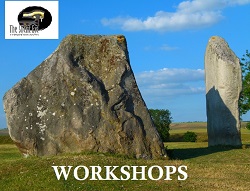
















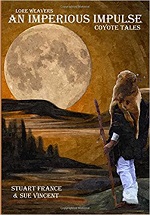


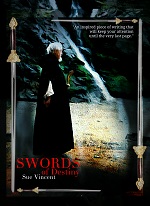










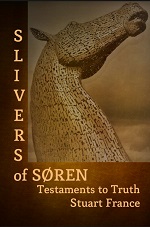


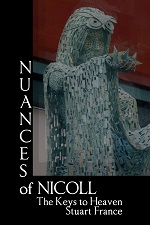




Reblogged this on Steve Boseley and commented:
I’ve a guest post today over on Sue Vincent’s Daily Echo. It’s called ‘Feel the Fear and Do It Anyway.’ It’s about the fear we experience and how we deal with it…
LikeLiked by 1 person
Thanks for the invite Sue!
LikeLike
A pleasure to have you over, Steve!
LikeLiked by 1 person
this is a outstanding, detailed, energetic presentation – I am sharing it on my blog page, please visit my page and like it:
https://www.facebook.com/Mihran.Kalaydjian.public/
Thank you…
LikeLiked by 1 person
Thank you for sharing Steve’s post.
LikeLike
Thank you for your kind words, and thank you for sharing! I hope it can help someone, as for me, anxiety can sometimes be a MASSIVE hurdle!
LikeLiked by 2 people
Steve – this was a great composition of reflection which is most practical and awareness.
LikeLiked by 2 people
Excellent guest selection, Sue. A Sinister Six sounds wonderful. Congrats Steve.
LikeLiked by 1 person
Thanks, John. It’s a long journey, as I’m beginning to understand!
LikeLiked by 2 people
One step at a time and dedicate yourself to the long haul.
LikeLiked by 2 people
Now if you’d care to wander over too, John ? 😉
LikeLiked by 2 people
I am working on a post for you. I just have been a little short on time. Thanks for the nudge. 😀
LikeLiked by 1 person
Wonderful, John. I understand the time constraints, especially with the relaunch of your book!
LikeLiked by 1 person
I’m doing a character development piece and was thinking of having my character interview me. We’ll see how it comes out.
LikeLiked by 1 person
That would be a novel approach 🙂
LikeLiked by 1 person
Hey! Look at me. Does this look like the face of a normal person? 😀
LikeLike
I wouldn’t know, John… I don’t think I’ve ever met one 😉
LikeLiked by 1 person
Ha ha ha. Good one, Sue.
LikeLike
🙂
LikeLiked by 1 person
What a great post! Thank you so much for sharing the fears and worries that took over your life for a while. It’s a fine reminder of how often we all let our own doubts grow to monstrous proportions, before we realize we’re doing it to ourselves.
I’ve always been of the belief that the only thing in life we can actually control is our reaction to it. We can plan and prepare, and it’s good to do so, but we aren’t actually in charge, and we better be ready to roll with the punches. There will no doubt be some we never saw coming. When they happen, we can throw ourselves down on the ground, kicking and screaming, or maybe go hide under the bed for the rest of our lives. Or we can cry and fume for a reasonable amount of time, then figure out Plan B, and move on. I think that way is better. 🙂
Much success to you with your continued writing. And poor Rick! What a scary concept. I love it, and I’m definitely heading to Amazon to check out The Sinister Six.
LikeLiked by 2 people
Thanks Marcia. I agree that the only thing I control is me.
LikeLiked by 2 people
Wonderful post, which I really enjoyed reading. I loved the way your colleagues reacted the first time they saw you in a wheelchair.
I enjoyed your flash fiction, The Photo – so much told in so few words.
LikeLiked by 2 people
Thanks! I think their reaction was the best I could have received- we see you’re in a wheelchair, but let’s get on with the day as usual.
LikeLiked by 2 people
This is a great post, with so much wisdom. We can all relate. I especially liked the concept of focusing on the one thing you do poorly, rather than the many things done well. And the book is no doubt as interesting as “The Photo”, will have to explore more. Thanks, Sue.
LikeLiked by 3 people
Thanks for the comment! Glad you enjoyed ‘The Photo.’ It’s big brother, ‘The Photograph ‘ is in ‘Sinister ‘.
LikeLiked by 2 people
Wow! People laughed? I can’t get over that part although I remember when I finally ventured to the store on crutches and a cast (after ankle surgery), a woman with a baby stroller ran it into the back of me. I couldn’t believe that she didn’t see me right in front of her so I guess you’re right, people can be nasty. I have a sister with MS as well as a co-worker and I love to help them, if they accept it. I just try to treat it as doing nothing special, like I would do it for any other person, which is true, too. But I try not to appear sanctimonious. People only want your help when they want your help and I can understand that. We all like to be independent.
I’m glad that you had a nice day at the beach and I loved your flash fiction piece.
LikeLiked by 3 people
Thanks! 😀
LikeLiked by 1 person
Loved this post a wonderful inspiring post.
LikeLiked by 3 people
Thanks!
LikeLiked by 1 person
thanks xx
LikeLiked by 2 people
This was a wonderful post. I must say I did feel quite astonished that Steve thought people would laugh because he was in a wheelchair. I can’t imagine that people would every be that unkind and mean. We have a lady in a wheelchair at work and people are always very nice. Only helping if it is required but being considerate. The short paragraph at the end was splendid – I have goosebumps from it.
LikeLiked by 2 people
It is quite astonishing how many people do react badly to folk using wheelchairs. I don’t think it is for any other reason, most of the time, than a desire to do the right thing and fear of getting it wrong… but the awkwardness manifests in some very strange ways. The one thing to remember is that these are not ‘wheelchair people’ (a term I’ve heard a lot) but just people.
LikeLiked by 3 people
Sue, You are right in what you say about wheelchairs nowadays. I work with disabled people for my daytime job, and what I see as a difficulty is trying to explain that disability comes in many different packages, not all of which are obvious.
In terms of referring to me, my son and daughter like to call me ‘a disabled.’ (though not in public!). I have learned to laugh (a lot) at myself, and I’ve encouraged my children to be comfortable around me and disability. I won’t tell you how people refer to me at work…:)
LikeLiked by 2 people
You don’t need to Steve 🙂 My son was left unable to walk and reliant on a wheelchair after a random attack a few years ago. We were forced to reassess our own unconscious attitudes and how so much unseen awkwardness gets beneath the radar. Laughter gets you through a good deal, but there are a lot of moments of quiet despair that never make it into the public eye.
One thing Nick did notice was how we have this ‘in spite of being disabled’ idea… as if that should matter. https://thesilenteye.co.uk/2016/11/15/word-power/
LikeLiked by 3 people
that’s a really good point, Sue. Disabled people are ‘inspirational’ and ‘brave’ and ‘don’t they work hard’. Trust me people, I don’t do anything special, I’m just awesome. I can’t help it 😉
Luckily at work, we all have a variety of disabilities, and we all have a wicked sense of humour!
LikeLiked by 2 people
I have this discussion with Nick… he actually does inspire me and many other people. Not because he is disabled, but because he is him… a bloody-minded, determined fighter who occasionally does amazing things. Most of the time, though, it is simply about moving through the day in the same way you have always done….and with that wicked sense of humour too.
The problem is that words like ‘inspirational’ mean different things to each of us… and although it has become something of a label for any disabled person who gets on with their lives, to the people looking from the outside, there may be no better word for the effect they feel. We can get a swift kick in the perspecive department from many sources 🙂
LikeLiked by 3 people
Like I said, the vast majority of people speak from a place of goodwill, not malice. I still think that if I don’t laugh at myself, I’m missing out on the biggest joke going!😀
LikeLiked by 1 person
If I said that to my son, he’d only turn it round on me 😉
LikeLiked by 2 people
🙂
LikeLiked by 1 person
In hindsight, I’m not sure why i fe;t that way, as it would never be something i would have ever done. Why I thought the majority of people would be any different to me, I can’t say. Like I say, that was a long time ago. Wheelchairs are commonplace in society today, and people generally are nothing but helpful. Also, when I took my family to Disney, I got to skip the queues, so that was cool…:)
LikeLiked by 2 people
Disability comes in many different forms. I have one son that suffers from post traumatic stress disorder and OCD (he had 18 big operations as a young child) and one that suffers from chronic brittle asthma. In some ways I think it is easier to be in a wheelchair because at least then the disability is obvious. If you have a mental disability people are not at all understanding, I have found. If it is not obvious then it doesn’t exist.
LikeLiked by 1 person
Having suffered with PTSD following Nick’s injuries, I know what you mean, Robbie.
LikeLiked by 2 people
Invisible disabilities are always more difficult to explain.
LikeLiked by 2 people
Anxiety can turn into such a monster which distorts everything. I am so glad that you mnshed to tame it enough to enable you to use the wheelchair. It must have been such a huge relief that your colleagues treatted you no differently just because you were in a wheelchair.
Congratulations on your book ‘The Sinister Six.Steve, It sounds a great read 🙂
LikeLiked by 3 people
Thanks Judy. I have found that anxiety has the power to twist one’s perception of reality. It was a hard way to learn a lesson, though!
LikeLiked by 2 people
Oh yes, it was a very hard lesson to learn!
LikeLiked by 2 people
Reblogged this on Don Massenzio's Blog and commented:
Check out this guest post by Steve Boseley on Sue Vincent’s blog
LikeLiked by 2 people
Thanks, Don. I had a blast writing this!
LikeLiked by 1 person
You’re welcome. It shows. Nice job.
LikeLiked by 2 people
Hi Steve. I’m so glad I read your post. I went through exactly that, only it wasn’t me in the wheelchair, it was my daughter, Carys. She got her wheelchair when she was five. She’s now eleven. We have had our share of difficult and unpleasant experiences because of that wheelchair, perhaps because she is a little girl and not an older person, I don’t know. But Carys doesn’t care… she’s comfortable in it and it makes her mobile. I wish I had a tiny bit of her attitude and courage. As you pointed out, the wheelchair doesn’t change you… only you do that, and you’re right, you really can choose. I’d also like to say your daughter sounds very wise. Fair play, you managed to push that button, yaaaaaaay! Wasn’t so bad, was it? 😊 Really enjoyed your story, too. All the best to you!
LikeLiked by 1 person
Great comment! I’m really glad everything is working for your daughter!
LikeLiked by 1 person
Pingback: Diary of an Author with Multiple Sclerosis : March 2017 | Steve Boseley
A wonderful, inspirational post. Thank you for baring your soul here, Steve, and thank you, Sue, for sharing Steve’s tale.
The photo was pretty chilling, especially for such a short story! Goosebumps…
LikeLiked by 1 person
My pleasure to have Steve over, Nicholas. 🙂 You know I love having guests… ( and you’re welcome back any time 🙂 )
LikeLiked by 2 people
Aw, you! Thank you 🙂
LikeLiked by 1 person
🙂
LikeLiked by 1 person
Cheers, Nicholas!
LikeLiked by 2 people